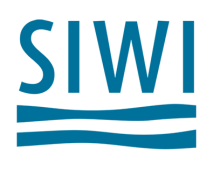Resource information
The publication of the third edition of the WHO Guidelines for Drinkingwater Quality (WHO, 2004) introduced the concept of integrated, preventive risk management through water safety plans (WSPs) as a means to put into operation the principles, standards, norms and best practice proposed by the Guidelines. The WHO suggests applying the same concept to support the implementation and operationalization of their Guidelines for the Safe Use of Wastewater, Excreta and Greywater in Agriculture and Aquaculture (WHO, 2006) which follow the same principles of HACCP and health-based targets. Such Sanitation Safety Plans (SSP) could be of similar value to the WSP in providing a hands-on manual to the application of the WHO (2006) Guidelines in different settings and situations for the safe use of wastewater and excreta in agriculture. The first SSPs will be developed in the framework of a 3 year funded project considering economic, institutional, technical, environmental & health aspects. A new Swiss funded project is supporting the development of SSPs. The presentation describes the project conceptual framework and options for SSP development in order to stimulate discussion and much appreciated feedback. Pilot SSPs will be linked to agricultural wastewater and excreta reuse cases thus addressing the critical interface between sanitation and food safety. The project management team involves two international organizations, two research institutes (sanitation, epidemiology and public health), and an international capacity building centre for water management services. The implementation in the field will involve partner institutions from research to policy and concerned communities in Africa, Asia and Latin America. The publication of the third edition of the WHO Guidelines for Drinkingwater Quality (WHO, 2004) introduced the concept of integrated, preventive risk management through water safety plans (WSPs) as a means to put into operation the principles, standards, norms and best practice proposed by the Guidelines. The WHO suggests applying the same concept to support the implementation and operationalization of their Guidelines for the Safe Use of Wastewater, Excreta and Greywater in Agriculture and Aquaculture (WHO, 2006) which follow the same principles of HACCP and health-based targets. Such Sanitation Safety Plans (SSP) could be of similar value to the WSP in providing a hands-on manual to the application of the WHO (2006) Guidelines in different settings and situations for the safe use of wastewater and excreta in agriculture. The first SSPs will be developed in the framework of a 3 year funded project considering economic, institutional, technical, environmental & health aspects. A new Swiss funded project is supporting the development of SSPs. The presentation describes the project conceptual framework and options for SSP development in order to stimulate discussion and much appreciated feedback. Pilot SSPs will be linked to agricultural wastewater and excreta reuse cases thus addressing the critical interface between sanitation and food safety. The project management team involves two international organizations, two research institutes (sanitation, epidemiology and public health), and an international capacity building centre for water management services. The implementation in the field will involve partner institutions from research to policy and concerned communities in Africa, Asia and Latin America.



